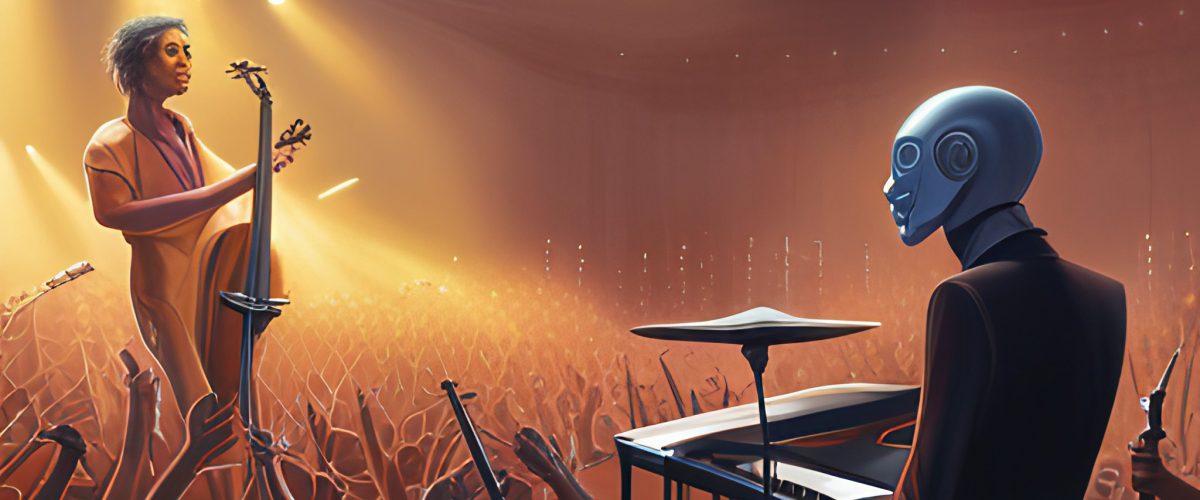The news this week about Randy Travis releasing a new song even though a stroke has affected his voice is both wonderful for him, but scary in what it means. It could change the careers of present and deceased celebrity entertainers. Just to remind you what occurred to create the new release by Randy.
Artificial Intelligence (AI) was used to recreate his voice at the suggestion of Cris Lacy, Warner Music Nashville co-president. The following content is italics is taken from the AP story describing the process. You can read the whole AP story here.
Lacy tapped developers in London to create a proprietary AI model to begin the process. The result was two models: One with 12 vocal stems (or song samples), and another with 42 stems collected across Travis’ career — from 1985 to 2013, says Kyle Lehning,
…Once he input the demo vocal (sung by James Dupree) into the AI models, “it took about five minutes to analyze,” says Lehning. And it was stunning, to me, how good it was sort of right off the bat. It’s hard to put an equation around it, but it was probably 70, 75% what you hear now.”
They cherrypicked from the two models, and made alterations to things like vibrato speed, or slowing and relaxing phrases to add a old soul quality to his voice. That’s one of the things that made him unique, but also, somehow familiar.”
“We were able to just improve on it,” Lehning says of the AI recording. “It was emotional, and it’s still emotional.”
“We do have other tracks,” says Lacy, but Warner Music is being as selective. “This isn’t a stunt, and it’s not a parlor trick,” she added. “It was important to have a song worthy of him.”
Think about what this means. Are we approaching the day when celebrity entertainers never finish their careers even when they are no longer alive? Randy is still certainly alive. However, the process used to release his latest single could be used to release new music by any artist with enough song samples. I can see the wheels churning with record labels and the estates of many huge entertainers.
Also read: Tips for Booking Celebrity Entertainers
Could we see new song releases by Elvis Presley, Michael Jackson, Toby Keith, or Jimmy Buffett? They obviously have huge catalogs with plenty of music for an AI program to learn their singing voice. They have huge name recognition and fans all over the world. They have tributes who have gone to great lengths to copy the vocal style and tone of the entertainers they emulate. Could all this come together, and we see the RCA Records label, now part of Sony BMG, release new songs by Elvis? Just think how many major entertainers could be resurrected from the dead to release new songs.
Now let’s take it a step further. AI could learn all the music and lyrics for songs Elvis recorded. Knowing the musical characteristics and lyrics of songs he recorded would allow an AI program to write songs for Elvis. Sounds logical to me. The outcome is a song that sounds like Elvis and fits his catalog of songs recorded.
Believe it or not, the star could tour after releasing their new song or album as well. In case you haven’t noticed, holographic concerts using deceased entertainers are a reality today. There are a number of concerts you can attend featuring hologram performances by deceased artists. You can view this video titled: “Holograms and AI can bring dead celebrities back to life”
We all know that record labels and the estates of major entertainers are interested in maximizing income and keeping the star’s brand alive in perpetuity. While we know the impact on record labels and star’s estate, we don’t know the impact on today’s artists and the live music industry. In April, over 200 artist signed on to a open letter submitted by The Artist Rights Alliance urging those involved in using AI to stop using AI “to infringe upon and devalue the rights of human artist.” You can read the full letter here.
These efforts are focused on preventing the predatory use of AI to steal artists’ voices and likeness and violate creators’ rights. Those efforts include a law passed last month in Tennessee to ensure that generative AI tools cannot replicate an artist’s voice without their consent.
My point is not that predatory use of generative AI, but the effects of such new music by deceased or those still living who can no longer sing or perform on the industry. Celine Dion, Roberta Flack, Julie Andrews, linda Ronstadt, along with Randy are part of group of many singing stars that can no longer use their voice for new records. They are no different than Randy and can provide their personal consent to new music generated the way Randy’s was.
What would happen to today’s music ecosystem if record labels or artists’ estates decided to bring back to life all of their major artists from years past. What would be the impact on the music industry of new songs from both deceased and living artists who can’t sing anymore? How would that impact on the careers of new and up-coming artists?
Would labels prefer to leave the human element of dealing with artists and their management out of the equation except for some major talent? Can they increase revenue and profits by using AI songs of deceased artists instead of signing new talent?
I certainly don’t know the answers to such questions. All I know is that we are entering a new paradigm that we can’t ignore when it comes to music. The music industry has crossed the Rubicon and there is no going back.
The opinions expressed in this article are those of Robert M. Brecht, Ph.D., Managing Partner of TSE Entertainment and his alone.




